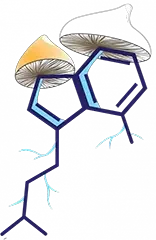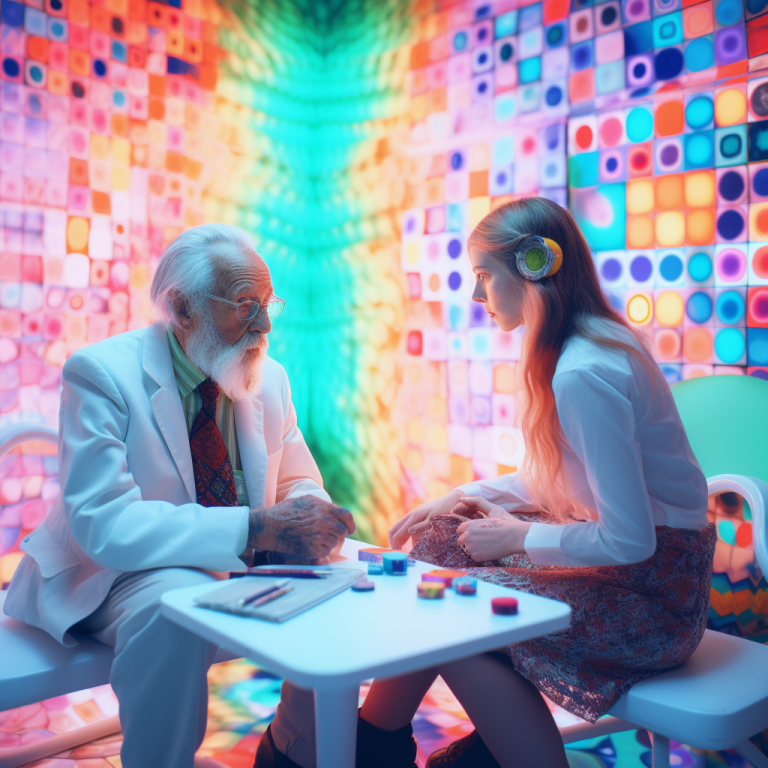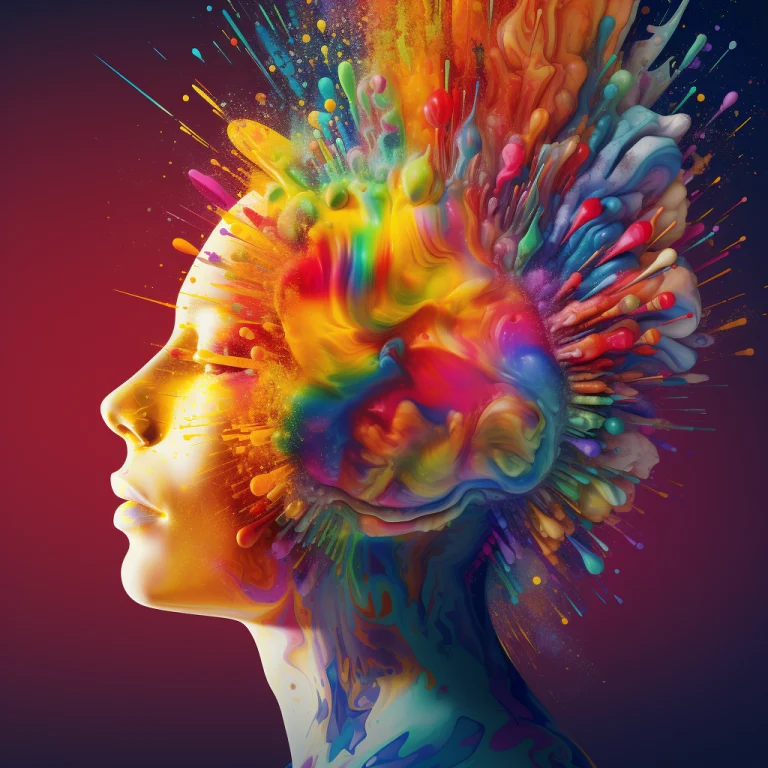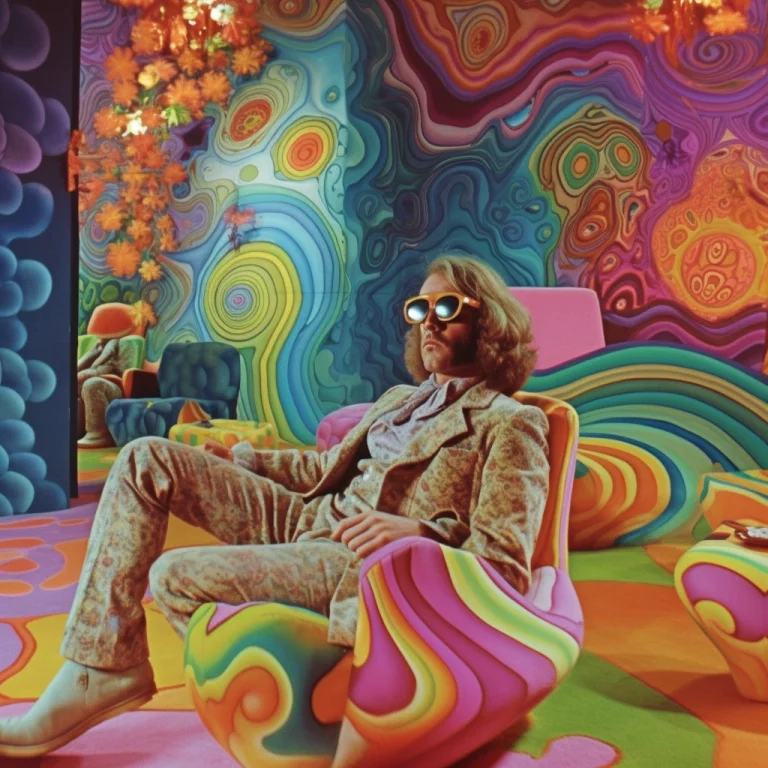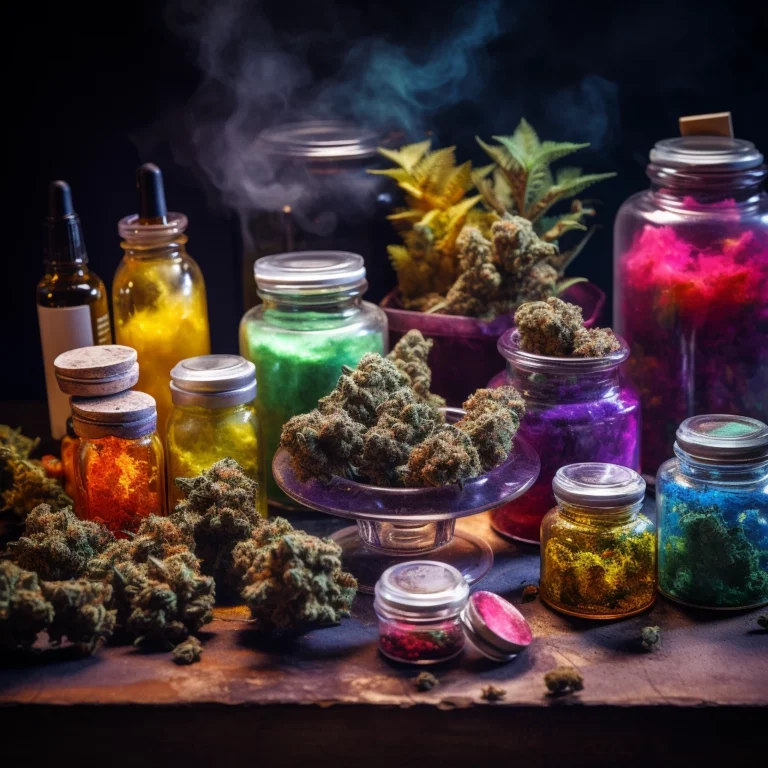Lysergic acid diethylamide, known colloquially as LSD, is a potent psychedelic compound capable of invoking a wide spectrum of mental and emotional states. LSD’s effects are multifarious, spanning from euphoria and amplified creativity to anxiety and experiences akin to psychosis. This narrative explores the multifaceted effects of LSD on our cognition and emotions, illuminating both its potential therapeutic virtues and the inherent risks.
The Genesis of LSD: A Retrospective and Pharmacological Overview
The journey of LSD traces back to the latter part of the 1930s, with Swiss chemist Albert Hofmann first synthesizing the compound. It was, however, a half-decade later that Hofmann chanced upon LSD’s psychoactive properties. The potent influence of LSD is primarily derived from its interaction with serotonin receptors in the brain, notably the 5-HT2A receptor. This interaction catalyzes a chain of events, altering brain activity and connectivity, ultimately leading to the dramatic shifts in cognition and perception characteristic of an LSD experience.
LSD and the Embodiment of Euphoria
Euphoria, a state of heightened joy and exhilaration, is often reported during LSD experiences. Users may encounter profound feelings of joy, delight, and well-being. This euphoria can present itself as an amplified appreciation for music, art, and nature, as well as a sensation of unity or interconnectedness. Investigations, such as the one undertaken by Preller and colleagues in Neuropsychopharmacology (2017), propose that LSD-induced euphoria may stem from the drug’s effect on emotional processing in the brain.
LSD and the Awakening of Creativity
Anecdotal accounts, coupled with certain research studies, intimate that LSD may serve as a catalyst for creativity. Users frequently recount experiencing vivid imaginative visions, fresh insights, and an enhanced ability to think beyond conventional confines. A study featured in Psychopharmacology (2016) observed that microdosing psychedelics could enhance creative problem-solving capacities. Nevertheless, it’s crucial to underscore that these effects can fluctuate significantly between individuals and are often contingent upon the ‘set and setting’ of the LSD experience.
LSD and the Induction of Spiritual or Mystical Experiences
Among the most profound impacts of LSD is its propensity to elicit spiritual or mystical experiences. These might include a sense of unity with the cosmos, transcendence of the self, and profound feelings of awe and reverence. A 2017 investigation published in the Journal of Psychopharmacology reported that psychedelic experiences, inclusive of those induced by LSD, could incite enduring changes in attitudes and beliefs related to spirituality.
LSD and the Emergence of Anxiety
While LSD can stimulate positive emotional states, it can also precipitate anxiety. Some users may experience intense fear, paranoia, or panic during an LSD journey. These negative experiences, often referred to as ‘bad trips,’ can be influenced by various factors, such as the individual’s mindset, the environment, and the dosage of LSD. A 2020 study in the American Journal of Psychiatry underscored that while LSD-assisted psychotherapy could significantly alleviate anxiety in patients with life-threatening diseases, caution must be exercised due to the potential of LSD to induce anxiety in certain circumstances.
LSD and the Bridge to Psychosis
LSD can elicit temporary states that mirror psychosis, including hallucinations and delusions. Although these states typically subside as the effects of the drug diminish, rare cases have been reported where individuals with a predisposition to psychotic disorders exhibit prolonged or even permanent symptoms. A review in Neuropsychopharmacology (2017) emphasized that while the risk is small, it’s a potential adverse outcome that must be taken into account, especially in individuals with a personal or familial history of psychotic disorders.
The Therapeutic Promise and Perils of LSD
The impact of LSD on mental and emotional states bears not only academic curiosity but significant therapeutic potential. LSD-assisted psychotherapy is currently under investigation as a treatment for conditions like anxiety and depression. However, while the therapeutic potential of LSD is promising, it’s crucial to remember that LSD use can also harbor risks, such as potential ‘bad trips’ or the exacerbation of pre-existing mental health conditions. Consequently, further exploration is needed to fully comprehend these risks and devise strategies to mitigate them.
A Journey Beyond the Known
In summary, LSD can provoke a vast array of mental and emotional states, from euphoria to experiences reminiscent of psychosis. Understanding these effects and the mechanisms underpinning them isn’t just intriguing—it’s crucial for leveraging the potential therapeutic benefits of LSD and minimizing the risks associated with its use. As we persist in our exploration of LSD and other psychedelics, we unlock new understandings and potential treatments for a variety of mental health conditions.
[gap height=”130px”]
[ux_image id=”8401″]
[gap height=”130px”]
We hope that you have gained a little more understanding and wisdom after reading through our article about LSD. We hope that it has inspired you to explore the multitude of possibilities through LSD.
Shroomhub is your trusted online source in Canada for all things Psychedelic, from Magic Mushrooms, LSD and even DMT, take advantage of our weekly deals and bargain prices you wont find anywhere else!
[gap height=”130px”]
[message_box]
[row v_align=”middle” h_align=”center”]
[col span=”9″ span__sm=”12″]
Author
Freelance Writer
Leo Thomas
[/col]
[col span=”2″ span__sm=”12″ align=”center”]
[button text=”Linkedin” color=”white” style=”outline” radius=”99″ link=”https://www.linkedin.com/in/leo-thomas-24b827279/”]
[/col]
[/row]
[/message_box]
